Bateman - Southern Nation
Here you can read online Bateman - Southern Nation full text of the book (entire story) in english for free. Download pdf and epub, get meaning, cover and reviews about this ebook. year: 2018, publisher: Princeton University Press, genre: Politics. Description of the work, (preface) as well as reviews are available. Best literature library LitArk.com created for fans of good reading and offers a wide selection of genres:
Romance novel
Science fiction
Adventure
Detective
Science
History
Home and family
Prose
Art
Politics
Computer
Non-fiction
Religion
Business
Children
Humor
Choose a favorite category and find really read worthwhile books. Enjoy immersion in the world of imagination, feel the emotions of the characters or learn something new for yourself, make an fascinating discovery.
Southern Nation: summary, description and annotation
We offer to read an annotation, description, summary or preface (depends on what the author of the book "Southern Nation" wrote himself). If you haven't found the necessary information about the book — write in the comments, we will try to find it.
Southern Nation — read online for free the complete book (whole text) full work
Below is the text of the book, divided by pages. System saving the place of the last page read, allows you to conveniently read the book "Southern Nation" online for free, without having to search again every time where you left off. Put a bookmark, and you can go to the page where you finished reading at any time.
Font size:
Interval:
Bookmark:

SOUTHERN NATION
Princeton Studies in American Politics: Historical, International, and Comparative Perspectives
Ira Katznelson, Eric Schickler, Martin Shefter, and Theda Skocpol, series editors
A list of titles in this series appears at the back of the book.
Southern Nation
Congress and White
Supremacy after
Reconstruction
David A. Bateman
Ira Katznelson
John S. Lapinski
RUSSELL SAGE FOUNDATION
NEW YORK
PRINCETON UNIVERSITY PRESS
PRINCETON AND OXFORD
Copyright 2018 by Russell Sage Foundation
Requests for permission to reproduce material from this work should be sent to Permissions, Princeton University Press
Published by Princeton University Press
41 William Street, Princeton, New Jersey 08540
6 Oxford Street, Woodstock, Oxfordshire OX20 1TR
and the Russell Sage Foundation
112 East 64th Street, New York, NY 10021
press.princeton.edu
russellsage.org
Jacket art courtesy of Shutterstock
All Rights Reserved
LCCN 2017959010
ISBN 978-0-691-12649-4
British Library Cataloging-in-Publication Data is available
This book has been composed in Adobe Text Pro and Gotham
Printed on acid-free paper.
Printed in the United States of America
10 9 8 7 6 5 4 3 2 1
CONTENTS
ACKNOWLEDGMENTS
There is a sense in which this project was born in a classroom on American Political Development at Columbia University. During a discussion of statebuilding in the late nineteenth and early twentieth centuries, John asked Ira about the absence of Congress, not only in that seminar but in APD more broadly. Much collaboration ensued, including the formation of the American Institutions Project at Columbia that, among other matters, housed a multi-year effort to substantively code congressional roll calls and statutes that was generously supported by the National Science Foundation (award #0318280).
After graduating at Columbia, John moved to Yale, then to the University of Pennsylvania. At Penn, John worked closely with his student, David, who since has gone on to teach at Cornell. This books history thus spans three scholarly generations. Each author has been concerned to build analytical history with Congress at the center, and to illuminate patterns of political representation within a wider ambit, including the place of the South as a region for which congressional power, from the Founding, has been vital.
Southern Nation first was conceptualized as a set of questions about post-Reconstruction America in intellectual partnership with Rose Razaghian as she, too, was concluding her graduate studies at Columbia and soon began to teach at Yale before moving back to Columbia in an administrative role. In early days, Ira, John, and Rose shared a year as visiting scholars at the Russell Sage Foundation, an invaluable institution that has proved more than patient in its wait for this book. The three authors remain indebted to Rose for her formative contributions.
More broadly, the sheer quantity as well as depth of our debt to an incredible community of scholars who work on Congress are reminders that scholarship is a collective enterprise. We are especially grateful to Frances Lee, David Mayhew, Charles Stewart, and Richard Valelly who selflessly joined us for an uncommonly productive day-long book workshop where they were confronted with a not-fully-baked penultimate draft. That intensive colloquy truly was pivotal in shaping our extensive final revisions. We suspect that we have not been able to satisfy all of their critiques, but hope they will see in the book a genuine appreciation for their insights and perspectives, and our deep gratitude for their comradely efforts and keen intellectual support.
David Mayhew, to whom we dedicate this book, deserves particular thanks. As Johns colleague at Yale for six years, he was instrumental from the beginning. As our collective colleague, he deserves credit for helping with various components of the book, and for providing no-holds-barred commentary throughout its construction. Davids first book, Party Loyalty among Congressmen, moreover, was instrumental in pushing us to think about the importance of policy issue substance. Also especially noteworthy are Josh Clinton, who shaped the book more than he probably realizes; Wendy Schiller, whose combination of precise knowledge and sense for intellectual architecture proved especially valuable; and the peerless Matthew Holden, who not only informed the books treatment of black disenfranchisement but demonstrated a special gift for working with younger scholars.
As Southern Nation took shape, it also benefited from the critical counsel of other scholars in addition to those already named or those at our home universities: Scott Adler, David Brady, John DiIulio, Gerald Gamm, Jeffrey Jenkins, Bryan Jones, Sunita Parikh, Justin Peck, Keith Poole, Eric Schickler, the late Barbara Sinclair, Tom Schwartz, and Stephen Skowronek. Two of the most significant were our anonymous reviewers, whose sharp insights and close reading of the text gave us much to think about and work with, and whose suggestions led to innumerable improvements, big and small.
The Center for the Study of Democratic Politics at Princeton University was where Davids participation on this project began. His experience there early in his faculty career was formative in shaping his contributions to the book, which benefited especially from the feedback and support of Jean-Franois Godbout, Kyle Dropp, and Miguel R. Rueda, as well as Michele Epstein, Charles Cameron, Nolan McCarty, and Keith Whittington.
We also are indebted to Barbara Gilbert and Daniel Meyer at the University of Chicago for their assistance in reproducing a photo of James OHara, and for granting us permission to reprint it here, as well as Molly and Mary Bell Kirkpatrick for graciously allowing us to use an extended quote from their grandfather, Donald Davidson.
Colleagues and graduate students at our home universities have offered especially supportive intellectual milieus within which our work has proceeded. At Columbia, the project has gained much from presentations at the American Politics Seminar and from comments by Robert Erikson, Andrew Gelman, Fred Harris, Jeffrey Lax, Robert Shapiro, Greg Wawro, and Justin Phillips, whose office at the Russell Sage Foundation was adjacent to Iras during an additional semester there as a visiting scholar. And we are grateful as well to those who, when graduate students. devoted many efforts to deepening the research and stimulated ideas that underpin the volume, including Alexander de la Paz, Sean Farhang, Christina Greer, Quinn Mulroy, Thomas Ogorzalek, David Park, Eldon Porter, Charlie Riemann, Amy Semet, and Melanie Springer.
At Cornell, the book was considerably improved through a workshop and discussions with Bryce Corrigan, Peter Enns, Sergio Garcia-Rios, Claire Leavitt, Adam Levine, Alexander Livingston, Jamila Mitchener, Erica Salinas, Delphia Shanks-Booth, AshLee Smith Garrett, Mallory SoRelle, and others. Particularly helpful were the numerous conversations with Richard Bensel, Suzanne Mettler, and Elizabeth Sanders, who offered vital guidance about how to think through some of the difficult questions raised by southern history and policymaking, and whose individual contributions to the study of American political development informed Southern Nation at each stage of its development. A special debt is owed to Elizabeth for her determined insistence that southern political history not be flattened, and that its diversity, including ideological diversity, be integrated into our story.
Next pageFont size:
Interval:
Bookmark:
Similar books «Southern Nation»
Look at similar books to Southern Nation. We have selected literature similar in name and meaning in the hope of providing readers with more options to find new, interesting, not yet read works.
Discussion, reviews of the book Southern Nation and just readers' own opinions. Leave your comments, write what you think about the work, its meaning or the main characters. Specify what exactly you liked and what you didn't like, and why you think so.

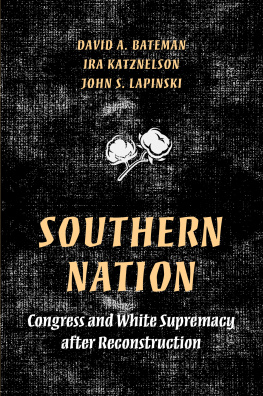
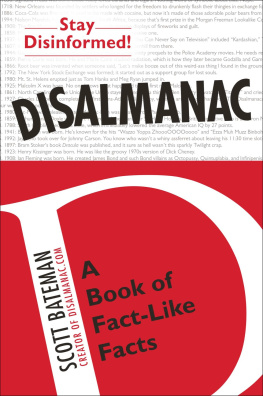
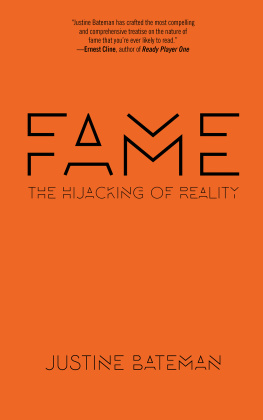



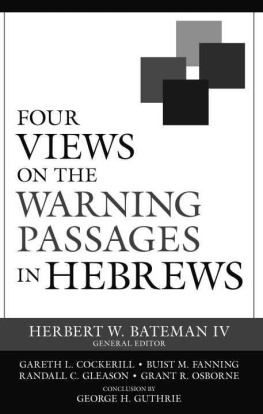
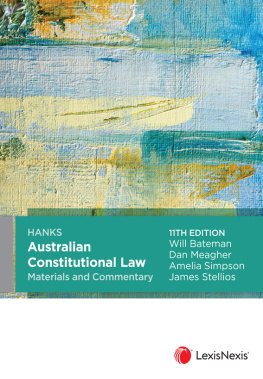

![Chris Bateman [Chris Bateman] - Beyond Game Design: Nine Steps Toward Creating Better Videogames](/uploads/posts/book/119409/thumbs/chris-bateman-chris-bateman-beyond-game-design.jpg)
